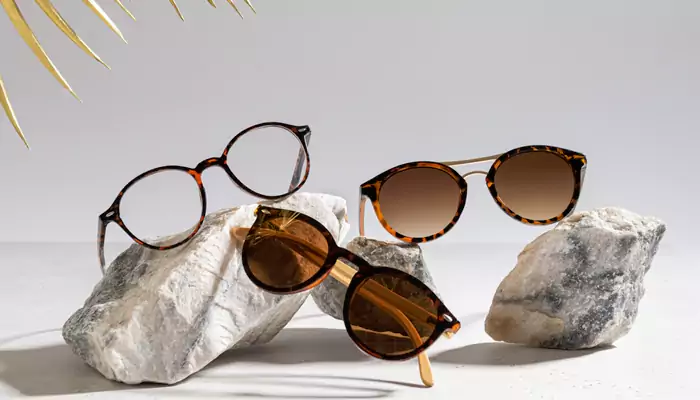How to protect your eyes from UV rays during outdoor adventures
Check out some essential tips to protect your eyes from harmful UV rays during outdoor adventures, from wearing UV-blocking sunglasses to using hats and goggles.
- Shriparna
- 20 November, 2024
- 2 mins ago

How to protect your eyes from UV rays during outdoor adventures
Check out some essential tips to protect your eyes from harmful UV rays during outdoor adventures, from wearing UV-blocking sunglasses to using hats and goggles.
Spending time outdoors offers numerous health benefits, from soaking up fresh air to staying active. However, the sun’s ultraviolet (UV) rays can pose a significant risk to your eye health. Overexposure to UV radiation can lead to short-term irritation and long-term damage, such as cataracts or macular degeneration. Whether you're hiking, skiing, or enjoying a beach day, protecting your eyes from UV rays should be a priority. Here are practical tips to safeguard your eyes while enjoying your outdoor adventures.
Wear sunglasses with 100% UV protection
The most important step in protecting your eyes from harmful UV rays is investing in high-quality sunglasses. Not all sunglasses are created equal, so it’s crucial to choose ones that block 100% of both UVA and UVB rays. Check the label for "100% UVA/UVB protection" or "UV400." Opt for wraparound or larger frames that cover the sides of your eyes for added protection. Polarised lenses reduce glare, especially when you are near water or snow.

Use a wide-brimmed hat for extra coverage
In addition to sunglasses, wearing a wide-brimmed hat can significantly reduce your exposure to UV rays. Hats with a brim of at least 3 inches can shield your eyes from sunlight coming from above and the sides, offering extra protection.
Consider UV-Protective Contact Lenses
For those who wear contact lenses, it’s worth considering lenses that offer built-in UV protection. While these lenses don’t replace the need for sunglasses, they can provide an additional layer of defence against harmful rays.
Wear goggles or shields during high-exposure activities
Certain outdoor activities, like skiing, snowboarding, or water sports, expose your eyes to even more intense UV rays due to the reflective surfaces of snow, water, and sand. In these cases, sunglasses alone may not provide adequate protection, and goggles or protective shields are essential.
Pay attention to the time of day and UV index
UV rays are strongest between 10 AM and 4 PM, making it essential to be extra cautious during these hours. Checking the UV index before heading out can help you gauge the intensity of UV radiation and determine how much protection you need.
Apply sunscreen around your eyes
While it’s important to focus on direct eye protection, don’t forget about the delicate skin surrounding your eyes. Sunscreen can help protect this sensitive area from sunburn, premature ageing, and skin cancer caused by UV exposure.
Stay hydrated and eat antioxidant-rich foods
Surprisingly, diet and hydration also play a role in protecting your eyes. Staying hydrated keeps your eyes moist and healthy, while consuming antioxidant-rich foods can support overall eye health and reduce the risk of UV-related damage.
Outdoor adventures are a great way to connect with nature and stay active, but protecting your eyes from UV rays is essential to maintaining long-term eye health. By wearing sunglasses with 100% UV protection, using wide-brimmed hats, considering UV-blocking contact lenses, and paying attention to the UV index, you can minimise your risk of sun-related eye damage. With a few mindful steps, you can enjoy the great outdoors safely while keeping your eyes healthy and protected.










